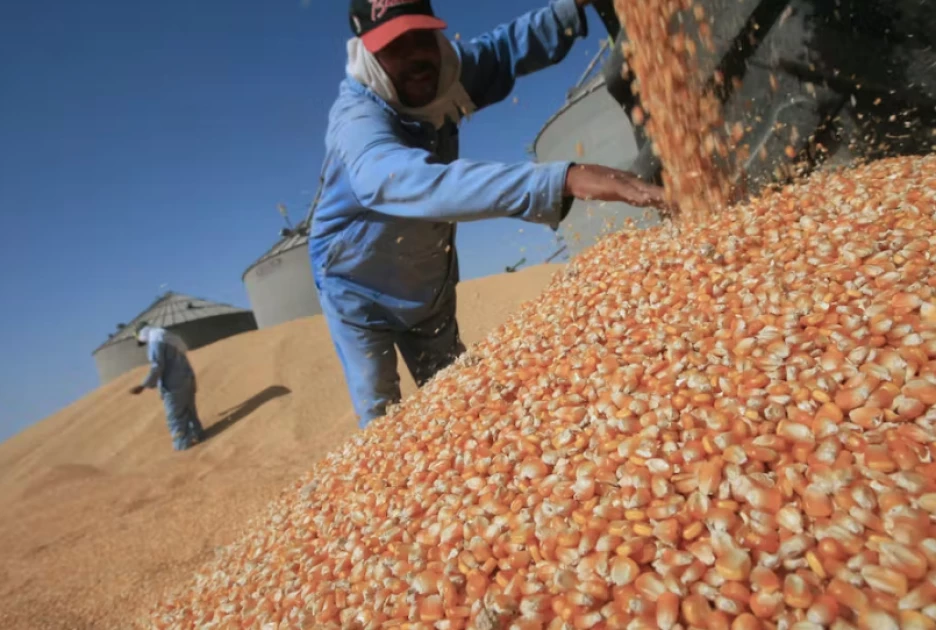Kenyans subjected to worst misinformation on GMOs, study finds

The study found that 40 per cent of the articles published on the subject of GMOs by 14 of Kenya's top media outlets contained unrebutted misinformation over three months from October 2022 to January 2023, at the height of the recent furore.
The study assessed 376 articles, 151 of which (40 per cent) contained anti-GMO misinformation. Pro-GMO misinformation was also found but in only 1 per cent of articles.
An earlier Alliance for Science study found rates of GMO misinformation in the global media of 9 per cent during the survey period of 2019 to 2021, with rates in Africa as high as 20 per cent.
However, a misinformation rate of 40 per cent would make Kenya potentially the worst in the world in terms of GMO media misinformation.
"This is extremely concerning," commented Alliance for Science executive director Dr Sheila Ochugboju, releasing the study to media and policymakers in Nairobi on Wednesday—February 15, 2023.
"It will be very difficult for Kenyan citizens to make properly informed decisions about GMOs in the face of this storm of misinformation."
She added: "Let us be clear. Scientists around the world have assessed GMOs, and have reached a strong consensus that new techniques for breeding crops such as genetic modification are not any riskier than older approaches. Thus any claims about the negative health effects of GMOs are 100 per cent false and must be reported as such in the media."
She pointed to a November meeting of the Kenya National Academy of Sciences whose Honorary Secretary professor Ratemo Michieka, stated: “Scientific authorities around the world such as US National Academy of Sciences, United Nations Food and Agriculture Organisation, World Health Organisation, American Medical Association for the Advancement of Science, have analysed thousands of scientific studies and concluded that GM food crops do not pose any risks to people, animals or the environment.”
The authors of the Alliance for Science study are careful not to place the blame at the feet of journalists and editors, however.
The vast majority of the stories that contained misinformation were simply repeating falsehoods about GMOs that had been stated by prominent politicians and anti-science NGOs.
The study cited opposition leader Raila Odinga, who made statements alleging the negative health impacts of GMOs, and Roots Party leader George Wajackoyah, who claimed that GMOs would make men grow breasts and women grow beards.
NGOs like the Kenyan Peasants League and Food Rights Alliance also made scientifically unfounded statements about GMO health effects which were repeated without rebuttal by media outlets.
This problem is not unique to Africa. Previous research by the Alliance for Science found that then-US President Donald Trump was the biggest single source of Covid-19 misinformation and that US media outlets were repeating his unfounded claims also without sufficient expert context or rebuttal.
"We have not conducted this research to point fingers," said Dr Ochugboju, "but to assist media in doing a better job of holding prominent persons and NGOs to account when they make unfounded claims about GMOs and other issues of scientific controversy."
"It is no longer enough to simply report what someone said. Journalists and media houses must do more than simply report the controversy. In doing so they risk unwittingly spreading misinformation.
“Just as with Covid-19 and with vaccines, media outlets must accept responsibility for not misleading their readers. Therefore when prominent people make false statements, scientists must be contacted to give proper context and readers must be informed in the same article if statements are false."
Ochugboju pointed to the recently established Africa Science Media Centre (AfriSMC), whose mandate is to more effectively connect media and reporters with scientific experts.
She also highlighted the role of the Alliance for Science in quantifying and combating misinformation across a broad range of topics, including food and nutrition security, global health and climate change.
The Alliance for Science is hosted by the Boyce Thompson Institute in Ithaca, United States.
Want to send us a story? SMS to 25170 or WhatsApp 0743570000 or Submit on Citizen Digital or email wananchi@royalmedia.co.ke
Comments
No comments yet.



Leave a Comment